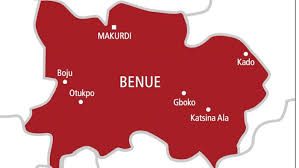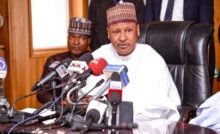- The Federal Government Monday insisted that it has not removed subsidy on petrol, saying any price increase may have come from petroleum marketers.
The Minister of State Petroleum Resources, Chief Timipre Sylva told journalists in Abuja at a stakeholders’ consultation forum on regulations organized by the Nigerian Midstream and Downstream Petroleum Regulatory Authority, NMDPRA, that the government still pays subsidies on petrol.
His comments came a month after petrol marketers including government-owned NNPC Limited raised the petrol pump price from government-regulated N165 per litre to N174-N215 per litre.
He said: “I can tell you authoritatively, we have not deregulated. The government is still subsidizing (petrol price). If there are increases in price, it is not from the government. It’s probably from the marketers but of course I will talk to the Authority to ensure that they actually regulate the price. This is not from the government, we have not deregulated”.
His comments came a month after petrol marketers including government-owned NNPC Limited raised the petrol pump price from government-regulated N165 per litre to N174-N215 per litre.
He said: “I can tell you authoritatively, we have not deregulated. The government is still subsidizing (petrol price). If there are increases in price, it is not from the government. It’s probably from the marketers but of course I will talk to the Authority to ensure that they actually regulate the price. This is not from the government, we have not deregulated”.
NMDRA unveils 12 regulations for sector
Speaking on the new regulations being considered for the industry, Chief Sylva said they will provide clarity for the operators and attract investments to the mid and downstream sector.
The Minister who admitted that the energy landscape in the country was in dire state, said the new regulation would clear up the sector for investments.
“This administration understands the need to have an all-encompassing, well thought out and unambiguous regulatory instrument that is painstakingly developed to meet present and future aspirations of government. This is required to attract much needed investments and create opportunities in the sector. Hence the need for stakeholders participation and engagement developing the regulations, processes and procedures”, he stated.
The Minister added that “whilst noting that the current state of our local energy landscape is dire and is in need of ingenious solutions, we have an opportunity to ameliorate the situation through these sets of regulations.
“I am privy to the overall intent of these regulations, which are to provide clarity and certainty for investors, promote and build investor confidence, increase and improve foreign and indigenous participation in these sectors, and optimize value for all our stakeholders. These will culminate into enablement of businesses, growth of the industry and creation of myriads of opportunities for Nigerians”.
Speaking earlier, the Authority Chief Executive, Engr. Farouk Ahmed explained that the consultation was in line with the mandate of the Petroleum Industry Act, PIA 2021 which ordered that stakeholders must be consulted before any regulations are made.
The new regulations address issues like petroleum transportation and shipment, licenses and permits, gas pricing for domestic market, gas pipeline tariff, the environment, as well as the gas infrastructure fund amongst others.
Ahmed explained that these “regulations are integral to the operationalisation of the PIA and require our collective commitment over the next few days. We are resolved that our policies will enable investment and ease of doing business, create employment opportunities for Nigerians and prevent undue burdens on our partners.
“Accordingly, our priority will be to ensure these regulations are primary enablers of the Federal Government’s Decade of Gas initiative and will help catalyse investment and enhance the attractiveness of the domestic gas value chain.
“We are also conscious that effective regulations must, amongst many outcomes, ensure fairness, equity, transparency, and certainty for all players in the regulatory space”.







